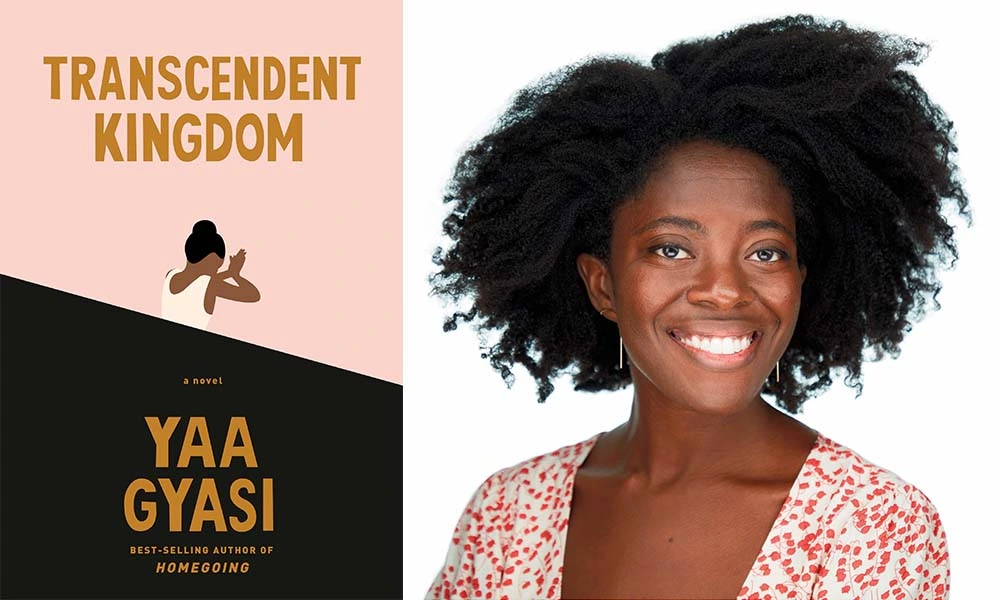We Take Everything with Us: An Interview with Yaa Gyasi

When I call Yaa Gyasi to talk about her new novel, Transcendent Kingdom, we are both in New York—she in Brooklyn and I in Harlem. Because of the pandemic, even our relative proximity feels like distance. Our conversation often turns to the topic of distance, how it manifests in the novel and how it plays into the journey toward healing.
Transcendent Kingdom could be called a chronicle of an attempt to heal. The narrative follows Gifty, a graduate student at Stanford who is studying reward-seeking behavior in mice. Though Gifty is in denial about her own past trauma, her work is influenced by her family history: her brother’s addiction and eventual overdose, her mother’s depression. That repressed past emerges into the present when Gifty’s mother, in the middle of a depressive episode, moves to California to live with her. With her mother sleeping in her bed, Gifty is forced into a role reversal: caring for the woman who raised her, trying to will her back to health. Gifty is forced to reconcile her new self, the scientist, with the constant reminder of her old self, an Evangelical Ghanaian immigrant raised in Alabama.
I wanted to know how Gyasi came to write a novel that departs so much from her first novel, the critically acclaimed Homegoing, a multigenerational saga that spans centuries. I was surprised to hear her say that sticking to a single character in Transcendent Kingdom felt more freeing. The story feels like an excavation, like pulling from the depths a self.
When I heard Gyasi speak years ago at Scripps College, she described Homegoing as “a series of love stories.” And certainly each of those vignettes felt like a tribute, small offerings of a character that left the reader mourning the final page of each chapter. With Transcendent Kingdom, Gyasi proves that she can sustain our love for a character over the course of an entire novel. My heart broke for Gifty, my eyes rolled at Gifty, and my chest tightened each time I felt her finally reaching, tentatively and reticently, for intimacy, community, an acceptance of the past and all the feelings that had gone so long hidden. “Where are you, Gifty?” the reader asks. “Come out, come out, come out.”
INTERVIEW CONTINUES ON TPR
Like this project
Posted May 29, 2023
Interview with Yaa Gyasi for The Paris Review
Likes
0
Views
37
Tags





